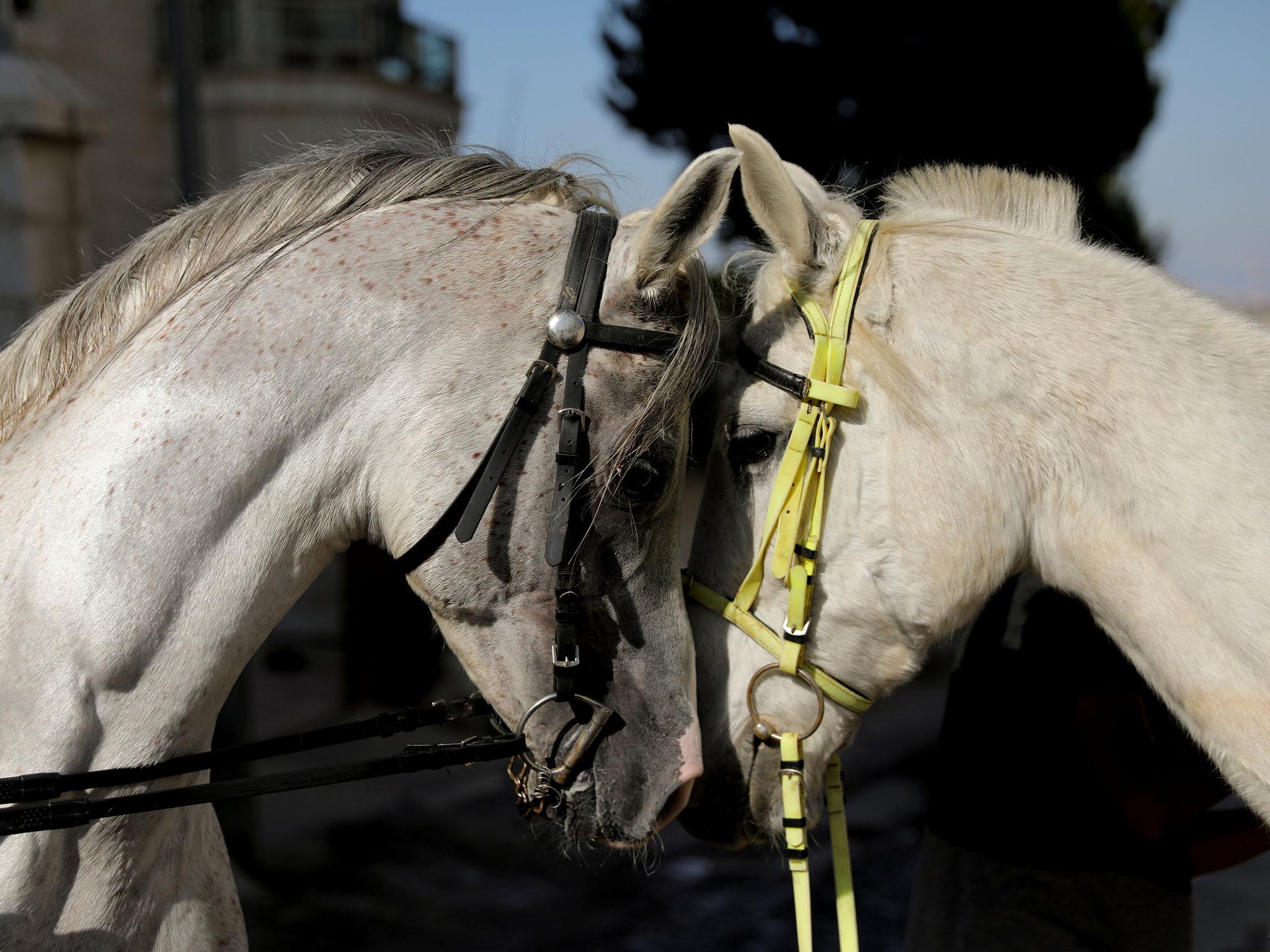Horses are able to read human emotions from voice and facial expressions, research finds
Previous studies show equines can interpret body language

Your support helps us to tell the story
From reproductive rights to climate change to Big Tech, The Independent is on the ground when the story is developing. Whether it's investigating the financials of Elon Musk's pro-Trump PAC or producing our latest documentary, 'The A Word', which shines a light on the American women fighting for reproductive rights, we know how important it is to parse out the facts from the messaging.
At such a critical moment in US history, we need reporters on the ground. Your donation allows us to keep sending journalists to speak to both sides of the story.
The Independent is trusted by Americans across the entire political spectrum. And unlike many other quality news outlets, we choose not to lock Americans out of our reporting and analysis with paywalls. We believe quality journalism should be available to everyone, paid for by those who can afford it.
Your support makes all the difference.Horses are able to read human emotions by collating the tone of voice and facial expressions, new research has found.
Scientists adapted a technique used to assess mental development in infants and showed the horses images of happy or angry human faces.
At the same time the animals listened to recordings of either praising or scolding voices.
On some occasions during the test the images matched the sound and at other times it did not.
The results, reported in the journal Scientific Reports, showed that horses reacted twice as fast when they were surprised that the voice and face were at odds with each other.
The animals' response to an "expectancy violation" suggests that they are able to integrate facial expressions and vocal tones to perceive human emotions, the scientists said.
Lead researcher Dr Ayaka Takimoto, from Hokkaido University in Japan, said: "Our study could contribute to the understanding of how humans and companion animals send and receive emotional signals to deepen our relationships, which could help establish a better relationship that emphasises the wellbeing of animals."
In 2015, Sussex researchers compiled a “dictionary” of horse facial expressions. They said the animals had a “rich repertoire of complex facial movements”, many of which were similar to those of humans.
Last year further research suggested horses could read human body language, even when they did not know the person.
Agencies contributed to this report
Join our commenting forum
Join thought-provoking conversations, follow other Independent readers and see their replies
Comments